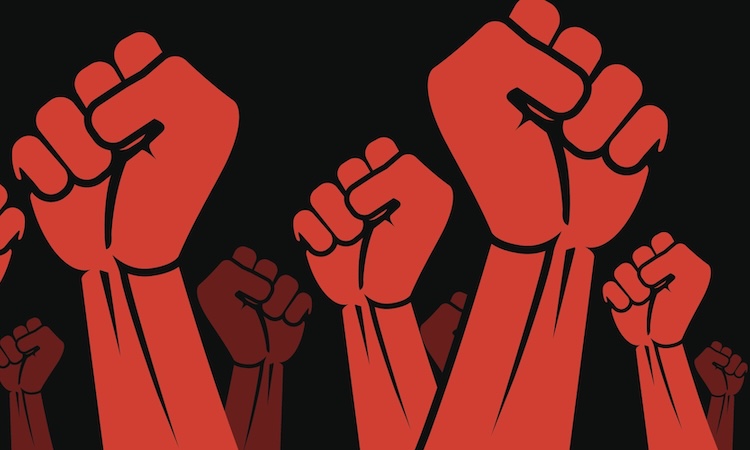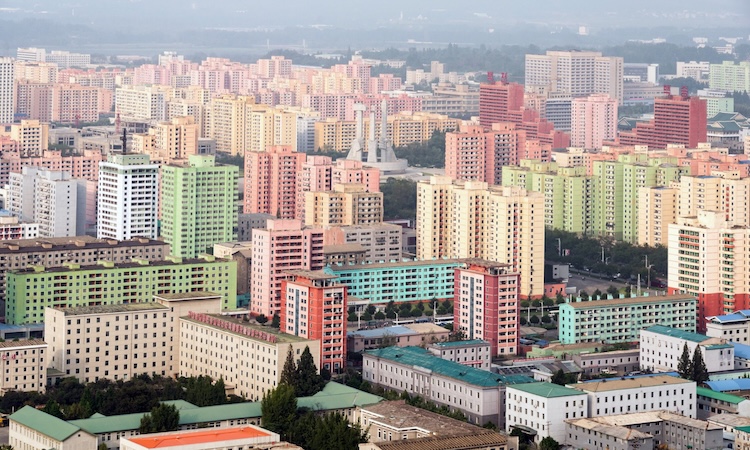The following resolution was passed unanimously by the tenth party congress of the CPGB-ML.
*****
This congress notes:
- That hardship is rising and spreading amongst the mass of the working class, with the numbers in working poverty as well as in what is classified as ‘very deep poverty’ climbing at an accelerating rate. This has been spurred by austerity and pay freezes on the one hand, and by a huge rise in the price of necessaries on the other. The crisis is bringing with it all the concomitant problems of homelessness, overcrowding and slum living, rapidly worsening nutrition, and an epidemic of poverty and nutrition-related chronic health conditions.
- That the rising numbers of working poor and unemployed, and the rapidly increasing prices of necessaries (food, clothing, housing, utilities), can no longer be contained by Britain’s dwindling social safety net. All bourgeois media are now forced to acknowledge the existence of a deep cost-of-living crisis, which even official statistics accept as affecting at least one in five people. The barren ‘explanations’ offered by bourgeois commentators bring little enlightenment, however, acting either to incense the working class against itself or simply to expose the powerlessness of the bourgeois state to solve the contradictions of the capitalist system.
- That, owing to the deepening global crisis of overproduction and the fall of the USSR, capitalist conditions in the west are in the process of reverting back to ‘business as usual’ after the extraordinary post-1945 period in which the imperialists could only ensure social peace by making far-reaching social concessions. This period, in which the entire working class of the west received a share from the superprofits obtained through imperialist superexploitation of the globe, is coming to an end, and the gap between the impoverished mass of the working class and the better-off labour aristocracy is becoming ever wider. On the one hand, the mass of the working class is sinking ever closer to the poverty line, and on the other the labour aristocracy itself is shrinking along with the destruction of the welfare state.
- That while it is important for workers to organise meaningful resistance and put forward a programme of demands that can ameliorate this situation now, a thoroughgoing and permanent solution to the questions of poverty, affordable housing, unemployment and the lack of decent service provision can only be realised through a socialist planned economy.
- That worsening living conditions are not enough in themselves to generate a class-conscious understanding. This can only be gained by studying the historical evolution and economic workings of the capitalist system, which has split society two great camps – the proletariat and the bourgeoisie. Class-consciousness means recognising this split, understanding the way it affects all aspects of society, knowing that the interest of these two classes are diametrically opposed to one another, and being able on this basis to work out where the class interests of the proletariat lie.
- That discontented workers without any connection to Marxist analysis and organisation are vulnerable to manipulation by the bourgeoisie, which takes every opportunity to inject poison into their minds in the form of divisive and entirely fallacious ‘explanations’ for their problems. The aim of these lies is to divert workers’ anger and set them against one another: to set British workers against foreign workers, brown against white, men against women, young against old, privileged worker against poor worker … and on and on.
- The importance and urgency of economic training for party comrades. Through group and individual study, our cadres must be prepared to meet all the reactionary lies regarding the current crisis with a dialectical materialist analysis and with genuine, revolutionary solutions. Only by gaining a thorough understanding of Marxian economics can we fulfil this role.
- The importance of revealing to workers that the lowering of their living standards is ultimately a result of the economic laws and contradictions that are insolubly bound up with the capitalist mode of production. This is necessary not only to recruit as many workers as possible to the proletarian cause, but also to deny them to the bourgeois camp, which will increasingly be seeking to misdirect and mobilise the disaffected into a reactionary guard.
- That, with the economic situation worsening by the day, we must demand urgent measures to address the cost-of-living crisis and stop the ongoing push to force ordinary people to bear the burden of a crisis that was not of their making.
This congress therefore resolves that the programme of immediate demands we seek to popularise amongst the working class includes:
- The nationalisation of all utilities (without compensation), as well as of the monopoly producers, manufacturers and distributors of food, so as to ensure a secure supply of all necessaries at affordable prices, free from the vacillations and disruptions of the world market.
- The mass requisition and building of social housing and the introduction of a rent cap to address the housing crisis.
- Renationalisation of every part of the NHS, including all its buildings and the pharmaceutical industry.
- The end of all aspects of British involvement in aggressive wars abroad, which means leaving Nato, dismantling all British bases overseas and bringing all troops and military contractors home, dismantling all US bases in Britain, and ending support for proxy forces anywhere in the world.
- The lifting of the minimum wage to a level providing a decent family existence.
- The enacting of legislation to ensure that pay and benefit rises keep pace with real inflation.
- An end to currency devaluation through endless money printing.
- An end to the self-defeating sanctions war against Russia, which is fuelling both the energy and the inflation crises.
- An end to all subsidies to monopoly corporations and banks. Any business considered ‘too big to fail’ or ‘necessary to the national economy’ that cannot make an adequate profit out of ordinary operations should be nationalised without compensation and run according to a plan based on meeting the needs of the people.
















